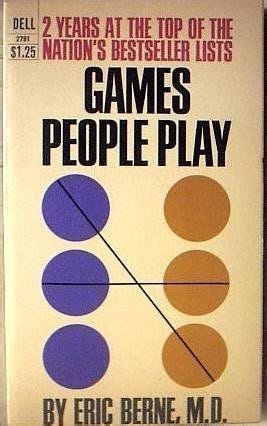Surrender Is for Slaves, but You Cannot Counter the Enemy on Its Own Turf, Either
What can be done instead?
Fighting is nearly always available, but victory is hardly ever guaranteed. In order to develop strategies, you are certainly well aware that you must carefully choose the ones that are suitable for you and applicable to your enemy’s weakness(es).
What’s the problem?
The subject is encyclopedic and the fight is apocalyptic. The subject itself goes back at least to Sun Tzu, whose The Art of War remains a classic even after 2,500 years:
https://classics.mit.edu/Tzu/artwar.html
Still, it’s always worth reconsidering one’s options as the situation keeps changing most of the time. The enemy’s reach is expanding, people are getting older, poorer, and weaker, while the light of life is becoming overshadowed more and more by some impenetrable darkness. One must make decisions and preparations, while there is time for those, because there won’t be much time to do it, when the time arrives.
So, what about winning?
Already Eric Berne noted in his 1964 bestseller, Games People Play1, that the one who initiates a game, always wins, if their rules are accepted by the other party.
One cannot counter the enemy on their own turf. The rules of engagement must be respected, but fat chance.
The globalist enemy doesn’t even engage you in a fight, unless you can make a difference. During the plandemic, most people who were considered inconsequential by the “authorities” were successfully muzzled, distanced from each other, or even “tested” or injected with a depopulation brew, and only a few put up a fight, risking their livelihood or even their lives. Those few understood that they were losing their lives, anyway. More and more people also understand that the plandemic was only a warmup for what’s coming2.
The opponents’ strategies
Once you challenge the enemy’s belief system, their lackeys and useful idiots usually jump into one of seven categories:
1. change the topic;
2. attack you ad hominem (categorizing, name-calling etc.);
3. engage in mind-reading and psychologizing (e.g. “you seem to suffer from a lack of intimacy”);
4. spurt out a word salad;
5. turn to analogy instead of sticking to the actual case (it can confuse most people, because only about 7% of people can think logically a few steps ahead, while the rest rely on analogies, that is, make their decisions on situations that were resolved previously and resemble the current one);
6. provide no response (they tell you, “it’s too complicated to explain”) or tell you you are incompetent to understand it;
7. rephrase what you’ve said that turns you into a feeble opponent (they use the “so-you’re-saying” straw-man argument);
They divert, consolidate, and aim at wiping you out, while trying to discredit you among your supporters3.
What gives?
In my experience, the only way to convince someone is by showing them that what I’m talking about is good for THEM. They usually don’t give a hoot about what I think or whatever argument I have at hand. In my Substack, the only parties I am working on convincing are the globalist technocrats, their enablers, and their enforcers. Only they have the power to change things for the better.
In more-or-less intimate relationships, it’s best to listen to the crazies and keep nodding and encouraging them to say more, because that can help with finding out about their weaknesses and the best first (and more) questions to ask. Most people wouldn’t believe how grateful people tend to be, when they feel that someone hears them out… Otherwise, between best friends, one question a day might work, but don’t hold you breath…
One might say, the only way to win is by not playing, which is certainly true for the globalists’ game, because they are not even interested in your point of view. In everyday situations, it’s even better to ignore the first challenge and initiate a counter-game. If the opponent is inexperienced enough, you can easily win. Other than that, when somebody wants to annihilate you, it’s not a game anymore, and you have only one way to handle the situation, and I am not talking about fight/flight/freeze/bargain. You must be prepared for that situation, because at that point, you indeed will not be “playing.”
By fighting back, you might gain time (which is often what one needs) or even if you lose the first fight, your enemy is likely to choose a weaker opponent, if you never give up. Surrender is for slaves.
Choosing one’s battleground is one of the prerequisites for winning.
Keeping an eye on your objective is even more important than who is right and who is wrong, when the battle is only a diversion by the enemy, as was so often the case during “covid”:
And more often than not, most public disputes still follow the same pattern.
As far as I can see now, only the person can draw the line as I did, and as concerted/centralized opposition is impossible, I can only hope that all those people who are still human will arrive at the same conclusion:
Freedom Is What Freedom Does. But What Does It Do?
The question must be answered before such situations arise
In my opinion, this is the best of all best-sellers in psychology. Most public libraries have several copies of it and when I first read it, I was done in a couple of hours (it’s fascinating and I would never give a college degree to anyone who doesn’t read and understand it), but remembered most of it several decades later. It has its limits with its behaviorist approach, but it is applicable in the overwhelming majority of all cases, because people think and act based on their primary and secondary socialization, which amounts to a nearly indomitable level of conditioning. Berne’s transactional analysis is based on what used to be “traditional American culture” in his days, and it also has its limitations, when applied to other cultures.
Most people still have little understanding how they are destroying their own and each other’s lives…
Fair disputes are possible, but the conditions for them can hardly ever be met. Steve Kirsch’s challenges clearly demonstrate the reasons why such encounters fail (it makes no difference if Steve is the challenger or he is being challenged):
https://rayhorvaththesource.substack.com/p/steve-kirsch-is-challenging-again







My issue with Berne’s classic is it assumes the other is NOT a psychopath and therefore is capable of engaging in the game of Theory of Mind. There is no ‘I think that they think that I think’. It’s simply I want and demand that you do such and such. And I as they lack entirely any semblance of empathy aka humanity, emotional arguments will go nowhere.
Being fascinated by the psychology of psychopathy, I studied that area, but did not specialise on it. Thus I concluded that I would never win, never be able to treat, those on the psychopathy spectrum. Tbh I always referred them on to the psychiatrists at the first glimmer that I was dealing with such a client. After a few episodes of being thrown about a room, punched to the floor and/or cornered, I decided I wasn’t paid enough for the risk.
So how do you deal with an entire class of ruling people who are psychopaths (if you prefer you may call them sociopaths as they’re high function)?
I do not know. But suspect it’s by threatening them with losing the success of their end-point. Better yet, losing their heads which equates to their money.
Interesting, Gates has been taken to court by numerous governments, including The Philippines and State of India for crimes against humanity: death, disabilities and sterility through his vaccine trials. And yet, they made no dent on his finance. These judges did not demand 25% of his wealth or the sale of his properties so he’s carried on. Of course one of the ways these psychopaths ensure they’ll never get their comeuppance is establishing Foundations. And to make them even more untouchable they are incorporated in Switzerland. See or ask Dr. Astrid Stuckelberger on this, and whether/how we can defeat them. Those from within the belly of the beast know best their weaknesses.
My decision is to Not Play. I "Dis-Engage". I create my own reality. It only takes around 15% of a population to affect a real change of direction.